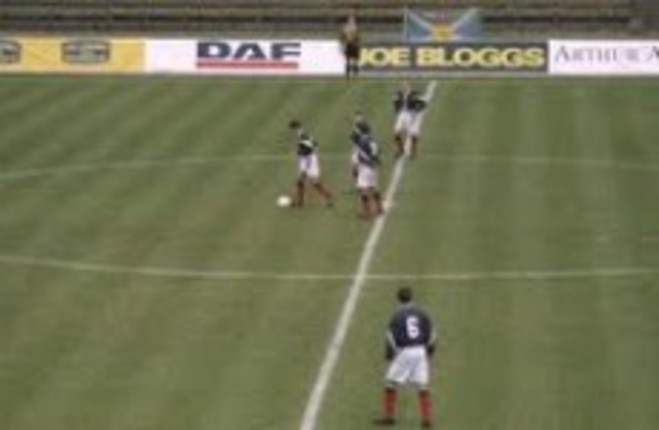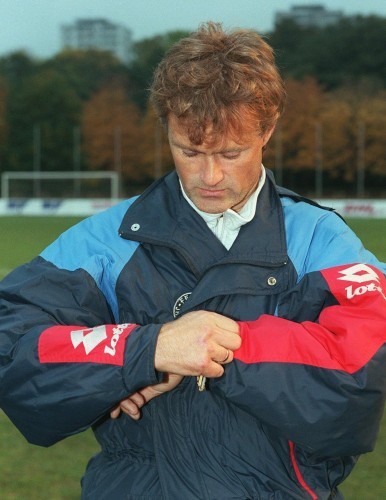OCTOBER 9TH 1996.
Having kicked off the World Cup campaign with a comfortable 5-0 win away to minnows Liechtenstein, Mick McCarthy took charge of his second competitive game as Ireland manager, having replaced Jack Charlton earlier in the year.
Macedonia came to town buoyed by the four points they had obtained from their opening two fixtures.
The infamous result which led to the coining of the phrase ‘I had a Macedonia’ was still a good six months down the road however, and Jason McAteer’s goal on eight minutes added to by a double from Big Cas ensured a satisfying night for the Lansdowne Road faithful.
Two thousand kilometres away in the Estonian capital, Billy Dodd and John Collins were tipping off for Scotland to begin their own qualifier in front of 600 travelling fans at the Kadriorg Stadium.
Something wasn’t quite right though… their opponents were nowhere to be seen.
Row
A couple of days beforehand, Craig Brown had arrived in Tallinn with his team and immediately voiced concern over the poor quality of the ground’s floodlights, which had been imported from Finland and installed temporarily for the match.
The U-21s had just played and he argued that the inadequate standard of the lights and the height at which they had been erected would prove problematic for the players and in particular, goalkeeper Andy Goram.
On the night before the qualifier was due to take place, an official complaint was made to referee Miroslav Radoman, FIFA match delegate Jean-Marie Gantenbein, as well as to FIFA headquarters in Zurich.
Despite Gantenbein’s belief that the match should go ahead as scheduled, the message from Zurich was that a change in kick-off time, from 6.45pm to 3pm, was necessary.
The Estonian FA steadfastly refused, stating that their players were at a training camp 80kms away and would be having lunch before leaving at 4pm.
They added that many of their fans would still be in work at the proposed time so would be unable to attend.
A television deal with the BBC had also been negotiated and a disruption in the time schedule would most likely mean a significant decrease in the fee upon which they had originally agreed.
At 1pm the team sheets of both sides were due to be submitted, but Estonia had yet to arrive. Even as the Scottish team warmed up at 2.30pm, Brown believed they would show.
All the formalities were followed with the exception of the national anthems and Radoman blew his whistle to signal the start of the game. Then he blew it again three seconds later to end it.
The Tartan Army vacated the old national stadium in full voice, singing: “One team in Tallinn, there’s only one team in Tallinn…”
“I am very upset,” said Brown after the bizarre non-event. “The players were psyched up for the match and there is a dreadful feeling of anti-climax.”
Anti-climax is right. The only goalmouth action the Scottish fans got to take in was one kilted fan’s efforts to make his way onto the abandoned pitch and dribble the ball over the line.
Estonia coach Tarmo Ruutli checks his watch whilst awaiting the Scotland team in the Kadriorg Stadium, Tallinn. He later found out the game had finished. (Pic: Matthew Ashton/EMPICS Sport)
Early murmurs from FIFA suggested Scotland would be awarded all three points for Estonia’s no-show.
A re-match was decided upon however, and the sides played out what was a marginally more eventful 0-0 draw in Monaco the following February.


